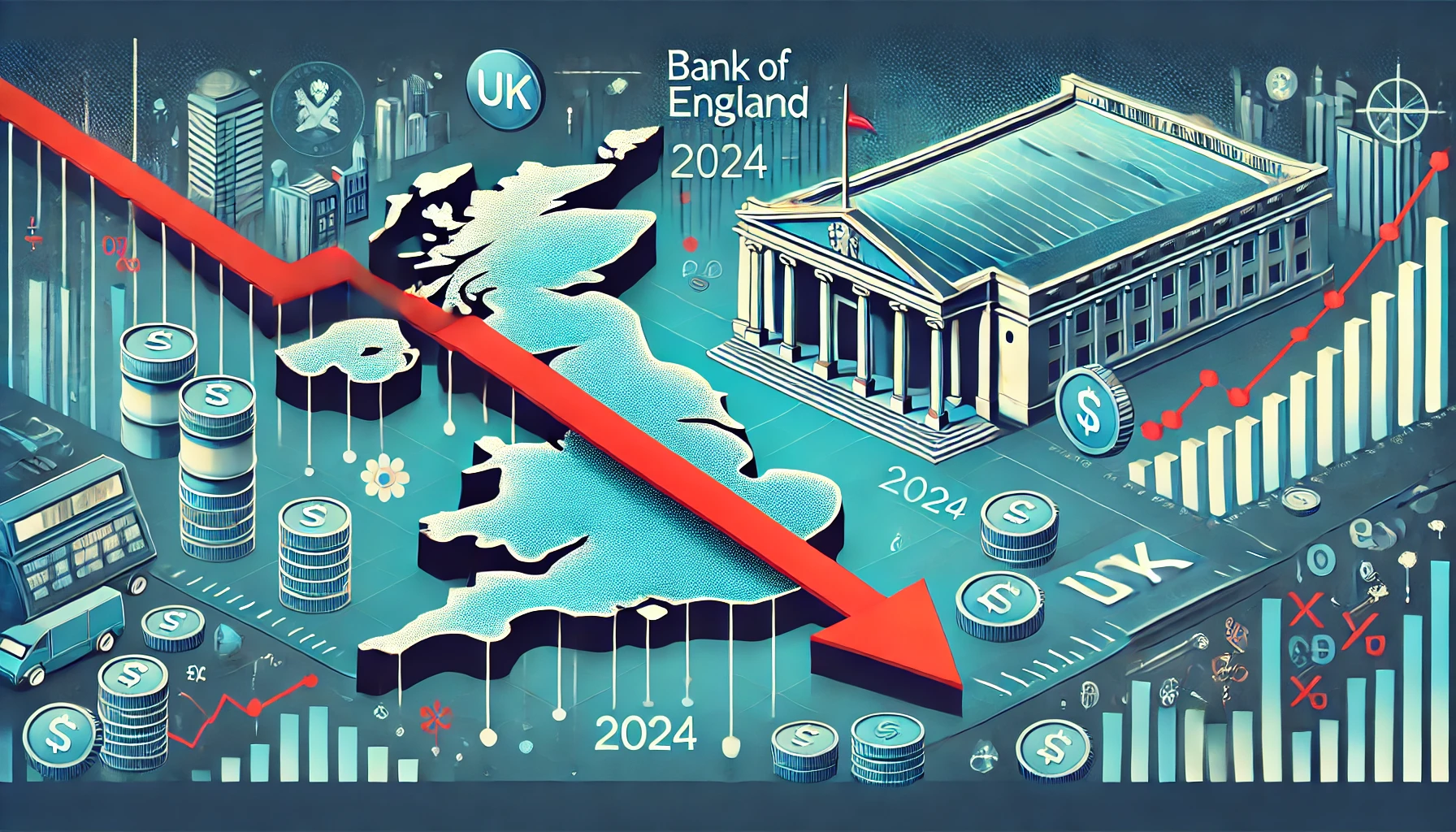Understanding the UK’s 2024 Inflation: What It Means for Consumers and Businesses
The economic landscape in the UK is undergoing a significant transformation, with inflation rates at the center of attention. As of 2024, the UK’s inflation trends have seen a substantial shift, with inflation falling sharply to 1.7%, below the Bank of England’s target for the first time in years. But what does this mean for consumers, businesses, and the broader economy? Let’s dive into the factors contributing to these changes and explore the potential impacts on the UK’s economic future.
UK Inflation in 2024: A Comprehensive Overview
Inflation is a measure of how much prices of goods and services increase over time. In 2024, UK inflation has dropped to 1.7%, a significant departure from previous years when inflation exceeded the Bank of England’s target of 2%. This change is largely driven by factors like declining fuel prices, a stabilizing global supply chain, and moderating demand following post-pandemic recovery.
The UK inflation rate 2024 presents both opportunities and challenges. For consumers, the easing of inflation may offer relief from the cost-of-living crisis, but for businesses, this change demands strategic planning to adapt to new economic realities.
What is the Bank of England’s Inflation Target?
The Bank of England inflation target is a cornerstone of its monetary policy, aimed at maintaining stable prices to ensure sustainable economic growth. The target is set at 2%, a level that balances the need for moderate inflation without stifling growth or creating hyperinflation. However, with UK inflation now falling to 1.7%, the question arises: should the Bank of England adjust its approach?
This sharp decline in inflation could prompt the Bank of England to reconsider its policies, potentially leading to interest rate cuts. As inflation drops, central banks typically lower interest rates to encourage borrowing and investment. For businesses, this could mean cheaper loans and a boost in consumer spending. For consumers, lower inflation often translates to stable or even declining prices, particularly in sectors like housing and utilities.
Key Factors Behind UK Inflation Drop
Several factors have contributed to the sharp decline in UK inflation 2024:
- Lower Fuel Prices: The global oil market has stabilized, leading to a drop in fuel prices. This has a knock-on effect on transportation and production costs, contributing to lower inflation.
- Supply Chain Recovery: The disruptions caused by the pandemic are gradually easing, leading to smoother global trade and lower production costs for goods.
- Moderating Demand: Post-pandemic demand has normalized, reducing the pressure on prices that had surged due to pent-up demand in previous years.
- Government Policies: Recent fiscal policies aimed at controlling inflation have had a significant impact on reducing upward price pressures.
The Impact of UK Inflation on Businesses
For businesses, particularly in sectors such as retail, manufacturing, and services, the decline in UK inflation presents both opportunities and risks. Lower inflation can mean lower costs for raw materials and production, but it also suggests a slowdown in price growth, which could impact profit margins.
- Retail Sector: Businesses in the retail sector may see a stabilization in pricing, which can lead to increased consumer confidence and spending. However, the challenge lies in balancing cost management with competitive pricing strategies.
- Manufacturing: For manufacturers, lower inflation may reduce the cost of imports and raw materials, providing an opportunity to improve profit margins. However, reduced consumer demand could offset these gains.
- Services Sector: The services industry, particularly those with high labor costs, may experience slower wage growth as inflation moderates, which can reduce operating costs but may also impact employee satisfaction.
Bank of England Interest Rates: What to Expect
The Bank of England’s monetary policy plays a critical role in shaping the UK economic outlook. With inflation below target, there is speculation that the Bank of England interest rates may be lowered further. Currently, the interest rate stands at 5%, but as inflation continues to ease, a reduction could stimulate economic growth by encouraging borrowing and investment.
Lower interest rates could be a boon for businesses looking to expand, particularly in sectors like real estate and construction, where borrowing plays a critical role. Consumers may also benefit from lower mortgage rates, which could increase disposable income and stimulate spending in other areas of the economy.
However, it’s essential to keep an eye on BOE monetary policy. While lower interest rates may stimulate growth, they can also lead to higher debt levels if borrowing increases without corresponding economic productivity gains.
UK Inflation Forecast: What’s Next?
Looking ahead, economists are forecasting a continued moderation of inflation in the short term, but uncertainties remain. Factors such as geopolitical tensions, global supply chain challenges, and fluctuating commodity prices could still impact the UK inflation forecast.
The UK economic outlook for the remainder of 2024 suggests that inflation will remain below the 2% target, but a return to higher inflation is not off the table if global conditions change. Businesses should prepare for both scenarios by focusing on cost management and strategic planning to navigate this period of economic uncertainty.
UK Economic Outlook: The Bigger Picture
The UK economic outlook remains cautiously optimistic despite the challenges of 2024. With inflation falling, consumers may experience more stable prices, which could improve confidence and spending. Businesses, on the other hand, should remain agile and prepared for potential changes in the economic landscape.
In summary, the UK’s falling inflation rate in 2024 presents a mixed bag of opportunities and challenges. For consumers, the relief from rising prices is welcome, while businesses must adapt to a new economic environment marked by lower inflation and potentially lower interest rates.
For those looking to stay ahead in this shifting landscape, understanding the factors behind the inflation drop, keeping a close eye on the Bank of England inflation target, and monitoring UK inflation news will be crucial.
Navigating the UK’s Inflation Landscape
As inflation trends continue to shift, both consumers and businesses must remain vigilant and proactive. The fall in UK inflation 2024 below the Bank of England’s target is a significant development, and its effects will be felt across various sectors of the economy. With lower inflation, the UK economic outlook suggests potential opportunities for growth, but only for those prepared to adapt to these changing dynamics.
For further insights into the evolving economic landscape, explore the detailed resources at Regent Studies, where you can find comprehensive educational materials on economics, finance, and more.



